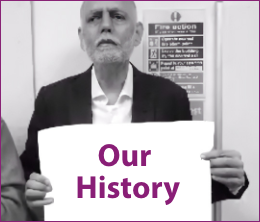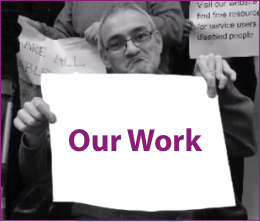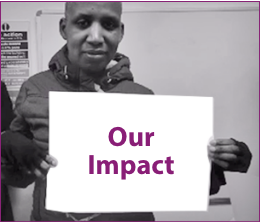
History of Shaping Our Lives
Shaping Our Lives is a non-profit making user-led organisation specialising in the inclusive involvement of Disabled people and people from other marginalised communities.
Shaping Our Lives enables individuals to have a stronger voice. Our work has demonstrated that by removing barriers and promoting inclusion, the value of lived experience can be equal to other professional competencies.
Shaping Our Lives started as a user-led project in 1996 and was registered as a non-profit making company in 2002. In 2021 we registered as a Community Interest Company to emphasise the social impact of our work. Read our Constitution (Word document) or download the Constitution as a PDF.
Read about our people.

Current Work
Shaping Our Lives promotes system and social change through the voices of those people most often excluded. Our work has been instrumental in supporting national policy development and we provide practical support for user groups and others.
We work to promote the voices of different equality groups who use health and social care services, and other services provided by the public and voluntary sectors.
We call those people service users and with them we tackle the issues they face and needs they have. Most – but not all – of our work is with Disabled people because 70% of health spend and most of adult social care spend is on Disabled people. Our expertise, however, is of working with people with multiple identities and disadvantages.
We recognise not everyone likes the term ‘service user’. Our members have agreed to use this term. Read more about definitions and meanings, and what we mean by them.
To read updates about our current work, visit our blog.




